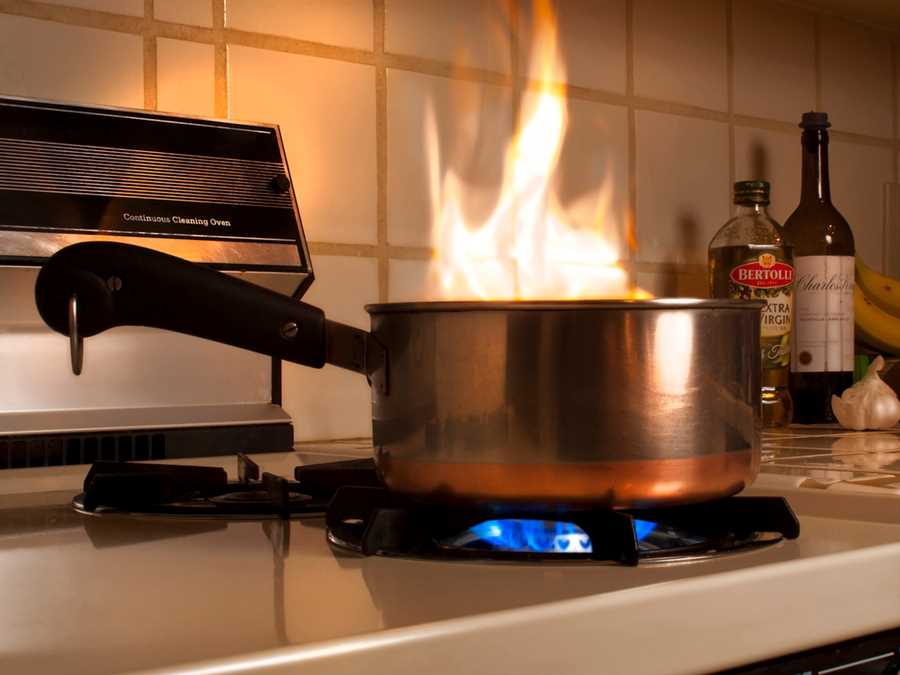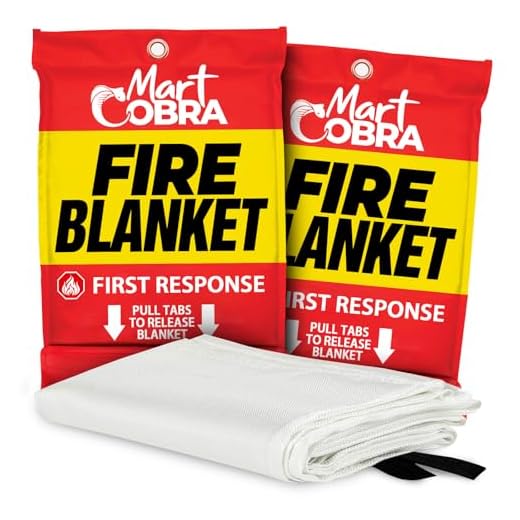







While cooking oil is a staple in many kitchens, it is important to understand its potential dangers. One of the primary concerns when it comes to cooking oil is the risk of spontaneous combustion. Spontaneous combustion occurs when a substance ignites without an external source of ignition.
Cooking oils, such as vegetable oil, can indeed be at risk of spontaneous combustion under certain conditions. When oil reaches its smoke point, it begins to break down and release glycerol and free fatty acids. These byproducts of oil degradation are highly flammable, and if they are exposed to a heat source, they can ignite and potentially cause a fire.
It is crucial to be aware of the smoke point of different cooking oils, as exceeding this temperature can increase the risk of spontaneous combustion. The smoke point is the temperature at which an oil starts to produce a visible smoke or haze. Oils with a lower smoke point, like extra-virgin olive oil, are more susceptible to spontaneous combustion than oils with a higher smoke point, such as canola oil.
To prevent the risk of spontaneous combustion, it is essential to store cooking oil properly. Keep it in a cool, dry place, away from any heat sources or open flames. Additionally, regularly check the quality of your cooking oil by examining its color, smell, and taste. If the oil appears dark, has an off-putting odor, or tastes rancid, it may be time to discard it and replace it with fresh oil.
Understanding the risks of cooking oil combustion
Cooking oil is a commonly used ingredient in household kitchens, but it is important to understand the risks associated with its combustion. While cooking oil does not spontaneously combust, it can catch fire under certain conditions.
Causes of cooking oil combustion
One of the main causes of cooking oil combustion is overheating. When oil is heated beyond its smoke point, the molecules in the oil break down and release volatile compounds. These compounds can ignite and cause a fire. Other factors that can contribute to cooking oil combustion include leaving the stove unattended, using an incorrect type of oil for frying, and accidental spills near heat sources.
Risks and dangers
The combustion of cooking oil can lead to serious risks and dangers. The fire can spread quickly and cause extensive damage to the kitchen and surrounding areas. In addition, the heat generated by the fire can cause burns or injuries to individuals who are present in the kitchen. The smoke and toxic fumes produced during the combustion can also pose a risk to health.
It is crucial to have proper fire safety measures in place when working with cooking oil to minimize the risks of combustion. This includes regularly cleaning the stove and surrounding areas to remove any oil residue, using the correct temperature settings, and never leaving the stove unattended while cooking with oil.
Remember: Proper knowledge and precautions can help prevent cooking oil combustion and ensure a safe cooking environment.
Disclaimer: This article is for informational purposes only and should not be considered as professional advice. Always follow the guidelines recommended by local fire safety authorities.
Factors that contribute to spontaneous combustion
Spontaneous combustion is a phenomenon that occurs when a substance ignites without an external ignition source. While cooking oil is not prone to spontaneous combustion, there are several factors that can increase the likelihood of it happening. Understanding these factors is important for preventing accidents and ensuring safety in the kitchen.
1. Heat
Heat is one of the primary factors that contribute to spontaneous combustion. When cooking oil is heated to its ignition temperature, the oil molecules break down and release volatile compounds. These compounds can ignite when exposed to an open flame, hot surface, or even a spark. It is crucial to monitor the temperature of cooking oil and avoid overheating it to prevent the risk of spontaneous combustion.
2. Oxygen
Oxygen is necessary for combustion to occur. When cooking oil is exposed to air, it undergoes oxidation. The process of oxidation generates heat, which can increase the temperature of the oil. If the oil reaches its ignition temperature, it can ignite and lead to spontaneous combustion. Proper storage of cooking oil, away from open flames and with limited exposure to air, can help minimize the risk of combustion.
It is important to note that these factors alone are usually not sufficient for cooking oil to spontaneously combust. Often, it requires a combination of several factors or the presence of other flammable substances to trigger combustion. Nonetheless, being aware of these factors and taking necessary precautions can significantly reduce the risk of accidents in the kitchen.
How to prevent cooking oil combustion
Cooking oil combustion can be extremely dangerous and can lead to fire and property damage. To prevent cooking oil from spontaneously combusting, follow these safety measures:
- Never leave cooking oil unattended while it’s heating on the stove.
- Keep the stove area clean and free from any flammable materials.
- Avoid overheating the cooking oil. Use a thermometer to monitor the oil’s temperature and keep it below its smoke point.
- Always use a deep-fry thermometer when deep-frying to ensure the oil stays at the correct temperature.
- Do not pour water into hot cooking oil, as it can cause splattering and increase the risk of combustion.
- Store cooking oil in a cool, dark place away from direct sunlight and heat sources.
- Regularly inspect the cooking oil for any signs of degradation, such as a rancid smell or dark color. Replace the oil if it appears to be spoiled.
- Dispose of used cooking oil properly. Allow it to cool completely before transferring it to a container and disposing of it in accordance with local regulations.
- Consider using a deep fryer with built-in safety features, such as an automatic shut-off, to reduce the risk of combustion.
Following these precautions can greatly decrease the risk of cooking oil combustion and help keep you and your property safe.
Safe storage and disposal of used cooking oil
Proper storage and disposal of used cooking oil is important for both environmental and safety reasons. Here are some guidelines to follow:
Storage:
- Allow the used cooking oil to cool completely before storing it.
- Use a clean, heat-resistant container with a tight-fitting lid for storage.
- Avoid storing the oil near heat sources or open flames.
- Label the container clearly to indicate that it contains used cooking oil.
- Keep the container in a cool, dark place to preserve the quality of the oil.
Disposal:
- Check with your local recycling or waste management facility to see if they accept used cooking oil.
- If recycling is not an option, do not pour the oil down the drain or toilet, as it can cause plumbing issues and environmental damage.
- Consider reusing the oil if it is still in good condition. Strain the used oil to remove any food particles, and store it separately from fresh oil.
- If none of the above options are available, seal the container tightly and dispose of it in the regular trash.
Remember, never dispose of used cooking oil in the yard or any natural environment, as it can harm plants, animals, and the ecosystem. By following these guidelines, you can ensure the safe storage and proper disposal of used cooking oil.
Fire Safety Measures in the Kitchen
When it comes to fire safety, the kitchen is one of the most important areas to focus on. A simple mistake or negligence can easily lead to a dangerous fire. By following some basic fire safety measures, you can minimize the risk and ensure a safe cooking environment.
1. Keep Flammable Items Away:
It is crucial to keep flammable items away from the cooking area. These items include kitchen towels, wooden utensils, paper towels, and curtains. Store them in a safe place, away from any potential source of heat or open flame.
2. Install a Smoke Detector:
Make sure you have a working smoke detector installed in your kitchen. This will alert you in case of a fire and give you enough time to evacuate and call for help. Test the smoke detector regularly to ensure its functionality.
3. Avoid Overheating Oils:
Some cooking oils, such as vegetable oil, can catch fire if they are heated beyond their smoke point. Always monitor the temperature while cooking and avoid overheating the oil. If a fire starts, turn off the heat source immediately and cover the pot or pan with a lid to suffocate the flames.
4. Turn Off Appliances:
After finishing your cooking, remember to turn off all the appliances. This includes the stove, oven, and any other cooking equipment. Leaving them unattended can lead to accidental fires.
5. Practice Safe Cooking Techniques:
Follow safe cooking techniques to minimize the risk of fire. Avoid wearing loose clothing that can easily catch fire. Use oven mitts or potholders to handle hot pots and pans. Keep children and pets away from the cooking area to prevent accidents.
6. Have a Fire Extinguisher:

Keep a fire extinguisher in your kitchen and know how to use it effectively. Make sure it is easily accessible and not expired. Familiarize yourself with the instructions provided by the manufacturer.
7. Create an Emergency Exit Plan:
Prepare an emergency exit plan for your kitchen and share it with your family members. This plan should include the nearest exits and a designated meeting point outside the house. Practice the plan regularly to ensure everyone knows what to do in case of a fire.
Remember, fire safety should be a priority in the kitchen. By implementing these fire safety measures and remaining vigilant, you can protect yourself, your loved ones, and your property from the devastating effects of a kitchen fire.
Question-answer
Can cooking oil catch fire on its own?
Yes, cooking oil can catch fire spontaneously under certain conditions.
What are the conditions that can cause cooking oil to spontaneously combust?
Cooking oil can spontaneously combust if it reaches its autoignition temperature, which is around 500°F (260°C).
Are there any specific types of cooking oil that are more prone to spontaneous combustion?
No specific type of cooking oil is more prone to spontaneous combustion. However, oils with higher smoke points, such as vegetable oil and canola oil, are generally safer to use as they have higher autoignition temperatures.
What precautions can I take to prevent cooking oil from catching fire?
To prevent cooking oil from catching fire, it is important to keep an eye on it while cooking and never leave it unattended. Keep flammable materials away from the stove, and use a thermometer to ensure the oil does not exceed its smoke point.
What should I do if cooking oil catches fire?
If cooking oil catches fire, it is important to remain calm. Do not pour water on the fire, as it can cause the flames to spread. Instead, turn off the heat source, cover the pan with a metal lid or baking sheet to suffocate the fire, or use a fire extinguisher if available.
Can cooking oil catch fire on its own?
Yes, cooking oil can catch fire on its own. Cooking oil has a high smoke point, which means that it can reach a temperature where it can spontaneously combust and ignite. It is important to be cautious when cooking with oil and to never leave it unattended on high heat.
What causes cooking oil to spontaneously combust?
Cooking oil can spontaneously combust if it reaches its smoke point and is exposed to an open flame or a spark. The heat can cause the oil to break down, release flammable fumes, and eventually ignite. Overheated oil is a common cause of kitchen fires, so it is important to be careful when cooking with oil.









